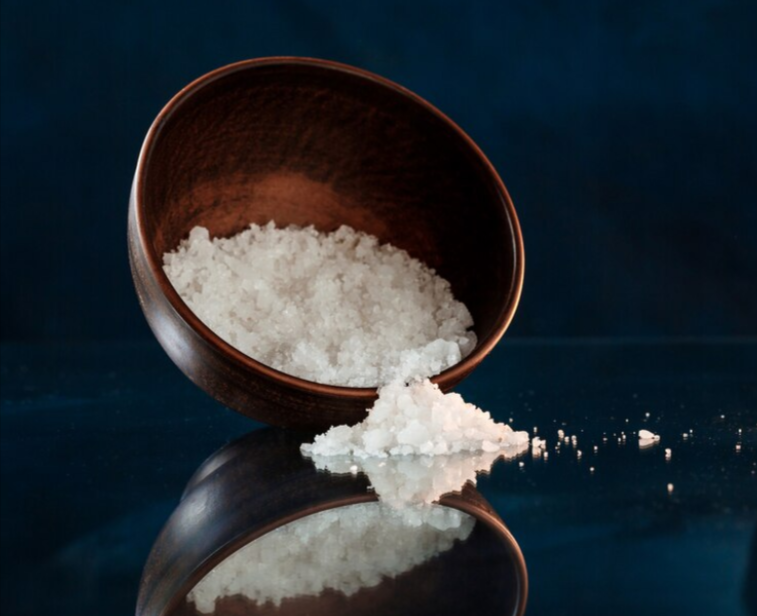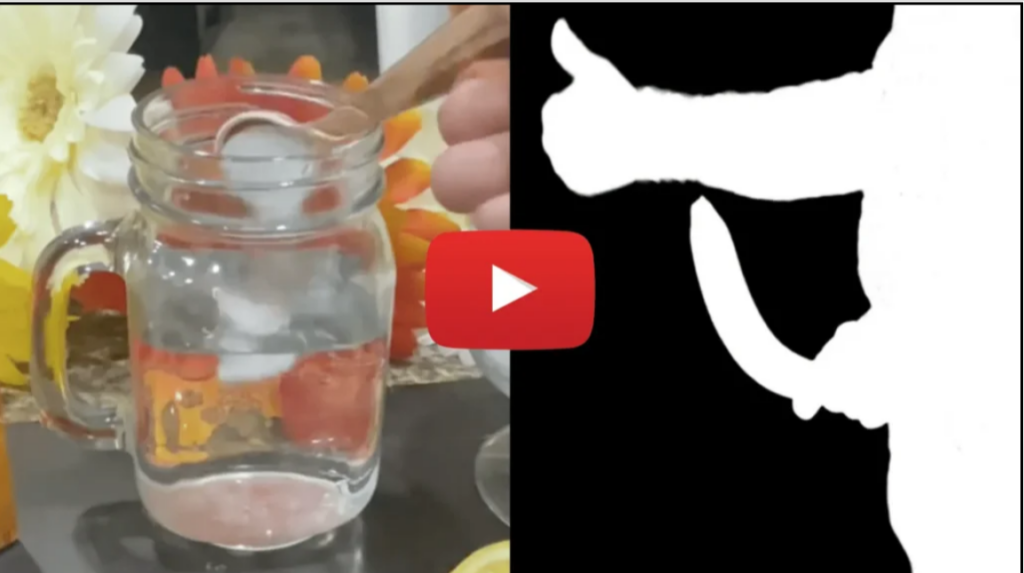Is The Salt Trick For Real? Separating Fact From Fiction
Have you ever heard about the salt trick and wondered if it’s legit? This simple yet mysterious method has been making waves online, promising everything from detoxifying your body to neutralizing negative energy. But is there any truth behind it? Or is it just another internet hoax waiting to be debunked?
Let’s face it, we’re all guilty of scrolling through social media and coming across some wild claims that sound too good to be true. The salt trick is one of those things that has sparked curiosity among people worldwide. Whether you're into wellness trends or just looking for something quirky to try, this topic definitely deserves a closer look.
In this article, we’ll dive deep into the world of the salt trick—what it is, how it works, and most importantly, whether it’s backed by science. So buckle up because we’re about to uncover the truth behind this viral phenomenon!
- Ray Romano Net Worth
- Rulz Kannada 2025 Download Rulz
- Trace Gallagher Family
- Frank Gallagher Actor
- Movei Rulz
What Exactly is the Salt Trick?
The salt trick refers to a practice where people use large amounts of salt—sometimes mixed with water or other substances—to achieve various health and spiritual benefits. Some claim it can cleanse your body of toxins, boost energy levels, or even improve mental clarity. Others believe it has metaphysical properties like removing negative vibes from your space.
But here’s the thing: not all salt tricks are created equal. Depending on who you ask, the method might involve different steps, ingredients, or intentions. For instance, some people swear by drinking a glass of salty water as a detox remedy, while others prefer sprinkling salt around their homes to ward off bad energy.
How Did the Salt Trick Become Popular?
Like many viral trends, the salt trick gained traction thanks to social media platforms like TikTok and Instagram. Influencers and wellness gurus started sharing their personal experiences with the salt trick, claiming it worked wonders for them. Before long, millions of viewers were intrigued enough to give it a shot.
However, the origins of the salt trick date back much further than the internet age. In traditional cultures, salt has long been associated with purification and healing. Ancient Egyptians, Greeks, and Romans all used salt for medicinal purposes, believing it had special powers. These historical roots may explain why the salt trick resonates so deeply with modern audiences.
Does the Salt Trick Really Work?
Now comes the million-dollar question: does the salt trick actually deliver on its promises? Let’s break it down based on scientific evidence and expert opinions.
On the physical health front, consuming excessive amounts of salt can pose serious risks, especially for people with high blood pressure or heart conditions. According to the World Health Organization (WHO), adults should consume no more than 5 grams of salt per day to maintain good health. Going over this limit can lead to dehydration, kidney damage, and other complications.
That being said, small amounts of salt can play an essential role in maintaining electrolyte balance and supporting muscle function. So if you’re using the salt trick in moderation and under medical supervision, it might offer some benefits. But don’t expect miracles—there’s no substitute for a balanced diet and healthy lifestyle.
Benefits of the Salt Trick (If Used Correctly)
- Supports hydration when combined with water
- May help regulate sodium levels in the body
- Could aid digestion in certain cases
- Provides a sense of ritualistic comfort for those who believe in its metaphysical properties
Common Myths About the Salt Trick
While the salt trick has its supporters, it’s also surrounded by plenty of misconceptions. Here are a few common myths debunked:
Myth #1: Salt Can Detox Your Body
Contrary to popular belief, your body already has a built-in detox system—your liver, kidneys, and digestive tract work together to eliminate waste naturally. Adding extra salt to your diet won’t enhance this process and could actually harm your organs in the long run.
Myth #2: Drinking Salty Water Burns Fat
There’s no scientific evidence to support the idea that drinking salty water helps burn fat. In fact, overloading your system with sodium can cause water retention, making you look bloated instead of slimming down.
Myth #3: Salt Has Magical Powers
While salt has cultural significance in many traditions, its supposed ability to neutralize negative energy remains unproven. If you find comfort in using salt for spiritual purposes, that’s perfectly fine—but don’t rely on it as a substitute for professional mental health care.
Who Should Avoid the Salt Trick?
Not everyone is cut out for the salt trick, even in its most basic forms. Certain groups of people should steer clear or consult a doctor before trying it:
- Individuals with high blood pressure or hypertension
- People with kidney disease or impaired renal function
- Those on a low-sodium diet prescribed by a healthcare provider
- Pregnant women or nursing mothers
If you fall into any of these categories, it’s better to err on the side of caution and skip the salt trick altogether. Your health is worth more than chasing a fleeting trend.
Alternatives to the Salt Trick
Don’t worry—if you’re looking for ways to improve your well-being without resorting to the salt trick, there are plenty of safer alternatives:
1. Stay Hydrated
Drinking enough water throughout the day is crucial for maintaining overall health. It helps flush out toxins, regulates body temperature, and keeps your skin glowing.
2. Practice Mindfulness
If you’re drawn to the spiritual aspects of the salt trick, consider incorporating mindfulness practices like meditation or yoga into your routine. These activities can help reduce stress and promote inner peace.
3. Eat a Balanced Diet
Focusing on whole, nutrient-dense foods is the best way to support your body’s natural detox processes. Load up on fruits, vegetables, lean proteins, and whole grains for optimal results.
Scientific Studies on Salt Consumption
Several studies have examined the effects of salt consumption on human health. One notable research published in the Journal of the American College of Cardiology found that high sodium intake significantly increases the risk of cardiovascular disease. Another study conducted by the National Institutes of Health (NIH) highlighted the importance of reducing dietary salt to prevent chronic illnesses.
These findings underscore the need for caution when experimenting with the salt trick. While a little salt won’t hurt most people, overdoing it can have dire consequences.
How to Perform the Salt Trick Safely
If you’re determined to try the salt trick despite the risks, here’s a step-by-step guide to doing it safely:
- Start with a small amount of salt—about 1/4 teaspoon dissolved in a glass of water.
- Drink it slowly and follow up with plenty of plain water to stay hydrated.
- Monitor how your body reacts. If you experience nausea, dizziness, or other symptoms, stop immediately.
- Limit your salt trick sessions to once a week or less, depending on your health status.
Remember, safety always comes first. If you’re unsure about anything, consult a qualified healthcare professional before proceeding.
Final Thoughts: Is the Salt Trick Worth It?
After exploring both sides of the argument, it’s clear that the salt trick isn’t a one-size-fits-all solution. While it may offer minor benefits for some individuals, the potential risks outweigh the rewards for many others. Ultimately, the decision to try it depends on your personal health goals and circumstances.
Our advice? Stick to proven methods for improving your well-being, such as eating nutritious foods, exercising regularly, and prioritizing mental health. And if you do decide to experiment with the salt trick, do so responsibly and with full awareness of the possible outcomes.
So, what’s your take on the salt trick? Let us know in the comments below, and feel free to share this article with friends who might find it interesting. Together, we can separate fact from fiction and make informed choices about our health!
Table of Contents
- What Exactly is the Salt Trick?
- How Did the Salt Trick Become Popular?
- Does the Salt Trick Really Work?
- Common Myths About the Salt Trick
- Who Should Avoid the Salt Trick?
- Alternatives to the Salt Trick
- Scientific Studies on Salt Consumption
- How to Perform the Salt Trick Safely
- Final Thoughts: Is the Salt Trick Worth It?
Article Recommendations
- Aditi Mistry Live Video
- Who Plays Bane Dark Knight Rises
- Ray Romano Net Worth
- Katia Washington
- Sotwe Viral



Detail Author:
- Name : Caroline Price
- Username : frederick48
- Email : wkoss@yahoo.com
- Birthdate : 2005-03-31
- Address : 99212 Denesik Junction Suite 336 Port Loraine, RI 00959-6635
- Phone : 769-356-3492
- Company : Douglas-Ernser
- Job : Spotters
- Bio : Illo culpa inventore et et. Culpa aut quis quia laboriosam commodi quo a. Non consectetur libero non dolor et. In reiciendis blanditiis doloribus consequatur. Esse similique atque nemo et.
Socials
facebook:
- url : https://facebook.com/mleffler
- username : mleffler
- bio : Quia culpa voluptate ratione sunt mollitia consequatur.
- followers : 3401
- following : 2226
twitter:
- url : https://twitter.com/meredith8203
- username : meredith8203
- bio : Aliquid dolore pariatur fugiat atque nihil. Eum ipsa quia ut maiores rerum nobis voluptatem. Voluptatibus ut dignissimos voluptatem voluptatum.
- followers : 5299
- following : 2389
instagram:
- url : https://instagram.com/mleffler
- username : mleffler
- bio : Repellat eligendi voluptas eius. Nihil quibusdam dolore ipsum asperiores molestias quae quis.
- followers : 3688
- following : 2665